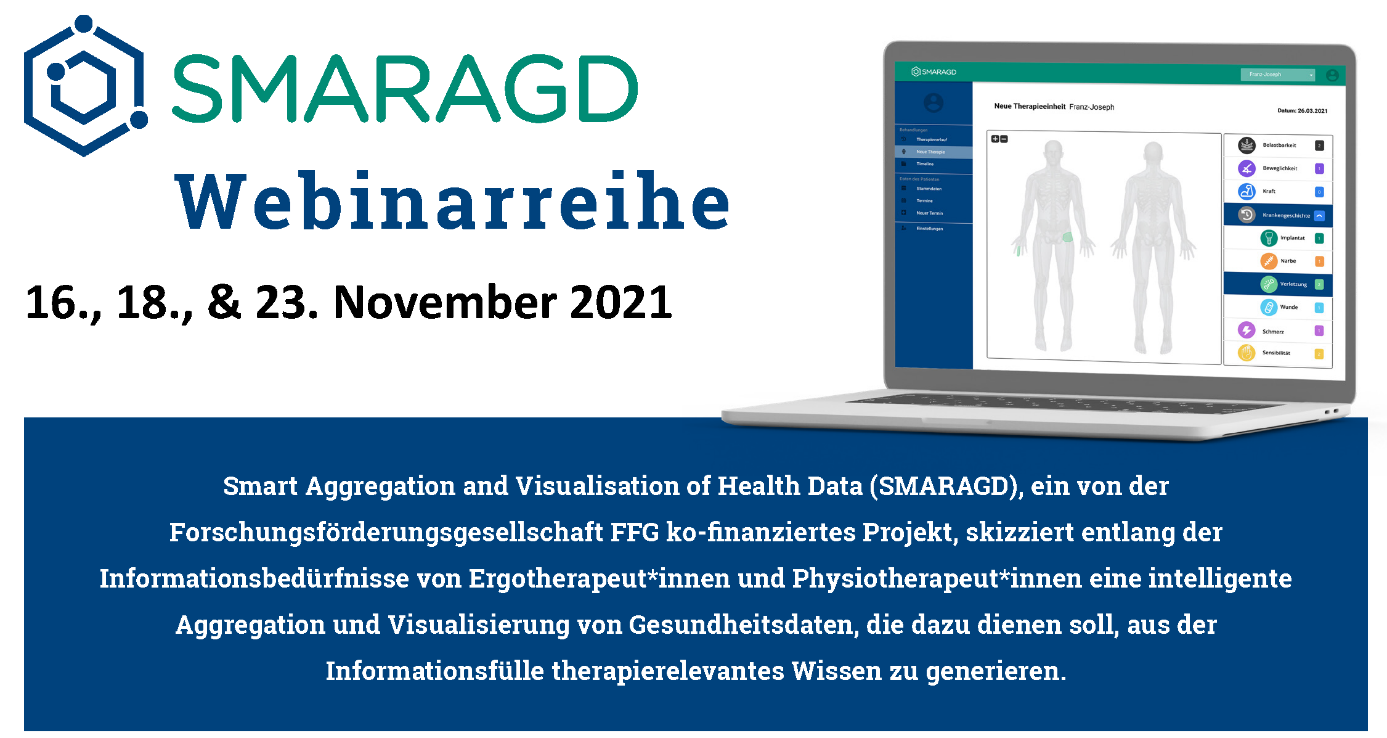 https://www.synyo.com/wp-content/uploads/SYNYO-NEWS-featured-image-NEW01007705EN.png
400
459
leo
https://www.synyo.com/wp-content/uploads/2017/09/synyo-logo.png
leo2025-01-01 10:47:112025-02-10 10:48:51BOND: Outcomes in Advancing Education, Tolerance and Heritage Preservation to combat Antisemitism
https://www.synyo.com/wp-content/uploads/SYNYO-NEWS-featured-image-NEW01007705EN.png
400
459
leo
https://www.synyo.com/wp-content/uploads/2017/09/synyo-logo.png
leo2025-01-01 10:47:112025-02-10 10:48:51BOND: Outcomes in Advancing Education, Tolerance and Heritage Preservation to combat AntisemitismSMARAGD

SMARAGD: Project results presented at the SMARAGD Webinar Series
The SMARAGD project outcomes were presented by consortium partners in a series of webinars. SYNYO presented visualisations of health care data relevant for physiotherapists and occupational therapists. The webinars targeted a diverse audience, ranging from students to health care professionals and researchers. All webinars were recorded and can be streamed on the project website.
The SMARAGD consortium organized a series of webinars to present the outputs of the different work packages. Five webinars were designed to address diverse groups of audiences. While some webinars provided inputs for researchers on how to conduct applied research on user requirements in collaboration with end users, other webinars highlighted academic insights from empirical research. All webinars were held in German and the event was promoted at universities, research organizations and hospitals staff which participated in the research project. Furthermore, the members of the SMARAGD advisory board were also invited to join the webinars.

The first webinar “The Relevance of Health Data and Individual Health Histories for Therapeutic Actions” focused on the knowledge needs of occupational therapists and physiotherapists and how these were elicited in the SMARAGD project. Christopher Schlembach and Michaela Pfadenhauer from the University of Vienna presented the results of the ethnographic study, which shows which (digital) data is important for therapy decisions, and how relevant information is captured in the interaction of therapeutic conversations and digital data.
The second webinar looked in detail at the patient data stored in hospital information systems. The Know Center demonstrated how therapy-relevant information can be extracted and aggregated from a wealth of data in the system. Heimo Gursch, Mark Kröll, Julia Egerer and Robert Reichel (Know Center) also discussed the challenges that need to be overcome in order to develop algorithms that can be used to analyse medical texts written by personnel in different institutions. As the data analysis showed, the standards of documentation vary between institutions and between persons, which complicates the ICT-based data aggregation and analysis.
In the third webinar, Mona Dür and Anna Röschel from the IMC University of Applied Sciences Krems explained how the ethical framework was developed in the SMARAGD project. They stressed the importance of developing a common understanding about research ethics when working in an interdisciplinary research project which deals with sensitive data (such as the data in the hospital information system).
The fourth webinar was dedicated to legal issues in the use of health data in research. The presentation by Philipp Leitner and Michael Stadlbauer from Johannes Kepler University Linz focused on the difference between anonymization and pseudonymization of data. Moreover, the legal framework of smart data aggregation and visualization of health data was presented.
In the fifth and final webinar, SYNYO presented the visualizations of therapy-relevant patient data, which were developed based on a collaborative effort of user requirements analysis with the University of Graz and the University of Vienna. Cordula Kupfer and Bettina Kubicek from the University of Graz discussed the methodologies applied to identify user needs (such as focus groups, interviews, online survey) and presented the results of the user tests of data visualizations which had been produced by SYNYO’s Tomas Lima. Diotima Bertel and Melina Breitegger (SYNYO) demonstrated how the feedback gathered in the user tests was integrated into three iterations of the visualizations in the context of a co-creation approach of ICT solutions.
All the webinars were recorded and can be streamed on the project website.
Links
https://www.smaragdprojekt.at/
Keywords
webinar, occupational therapists, physiotherapists, information needs, electronic health data, interviews, ethnographic semantics, focus groups




